Course Delivery Type
There are three ways courses are delivered, and you will need to choose carefully as once you pay we are unable to change this with the accrediting body.
Below you see the descriptions of each course type, and next to the title of the course, you will see how this course is delivered. Choose the delivery type you most prefer.
Face to face
You will need to attend both sessions in a training venue.
Blended
Part of this course will be in a training venue, and the other part will be online.
Online
This course is delivered 100% online
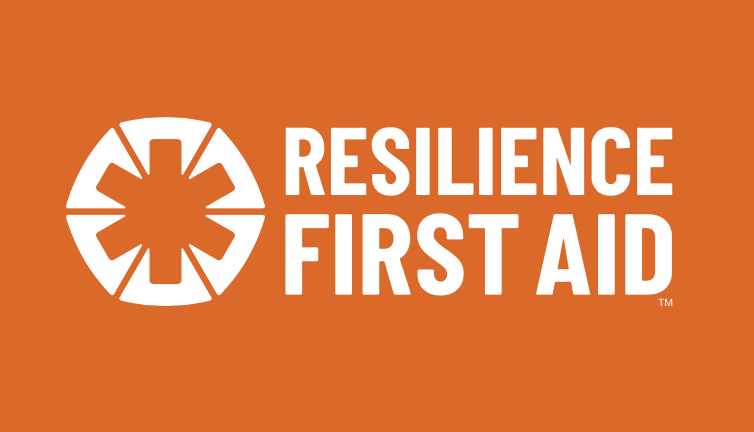
Resilience First Aid (RFA) is a 2-day mental health certification designed to teach strength-based skills that support resilience in others and foster meaningful relationships. Participants will learn to recognize signs of low resilience, develop the language to engage proactively, and acquire skills to enhance resilience. This proactive approach to mental health helps prevent suicide by building meaningful connections and impactful conversations.
Learn more
Course Delivery Type
There are three ways courses are delivered, and you will need to choose carefully as once you pay we are unable to change this with the accrediting body.
Below you see the descriptions of each course type, and next to the title of the course, you will see how this course is delivered. Choose the delivery type you most prefer.
Face to face
You will need to attend both sessions in a training venue.
Blended
Part of this course will be in a training venue, and the other part will be online.
Online
This course is delivered 100% online
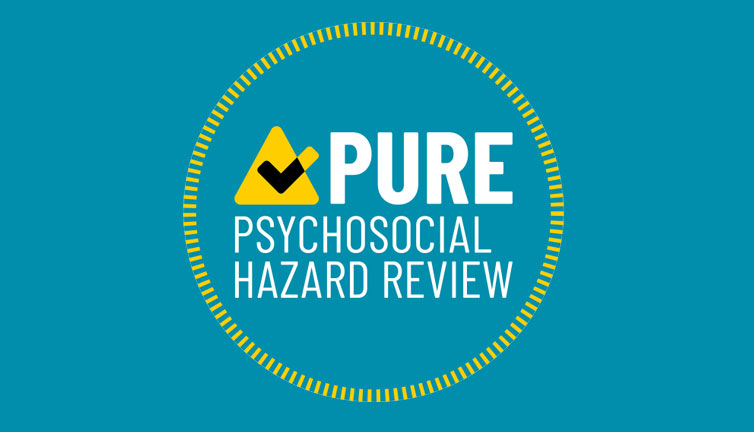
Initial Audit for as low is $1000
JSECC integrates Driven’s PURE Framework (Protect, Unite, Respect, Empower) to assess all 17 psychosocial hazards required under law, scoring each as High Risk, Moderate Risk, or Managed to indicate the level of action needed. This approach helps organisations strengthen workplace culture while providing clear evidence of compliance. Reports generated through the Driven Pro system automatically include a detailed PURE Psychosocial Hazard Review, and reassessment reports allow organisations to quantify progress and demonstrate effective hazard management over time.
Course Delivery Type
There are three ways courses are delivered, and you will need to choose carefully as once you pay we are unable to change this with the accrediting body.
Below you see the descriptions of each course type, and next to the title of the course, you will see how this course is delivered. Choose the delivery type you most prefer.
Face to face
You will need to attend both sessions in a training venue.
Blended
Part of this course will be in a training venue, and the other part will be online.
Online
This course is delivered 100% online

PRE Training is a four-hour, self-paced course designed to help you build resilience, boost wellbeing, and develop the vital life skills needed to handle whatever comes your way. Combining engaging content with world-leading assessment, AI-powered coaching, and six months of ongoing micro-learning, PRE gives you the tools to stay calm, think clearly, and keep moving forward.
Learn more
Course Delivery Type
There are three ways courses are delivered, and you will need to choose carefully as once you pay we are unable to change this with the accrediting body.
Below you see the descriptions of each course type, and next to the title of the course, you will see how this course is delivered. Choose the delivery type you most prefer.
Face to face
You will need to attend both sessions in a training venue.
Blended
Part of this course will be in a training venue, and the other part will be online.
Online
This course is delivered 100% online
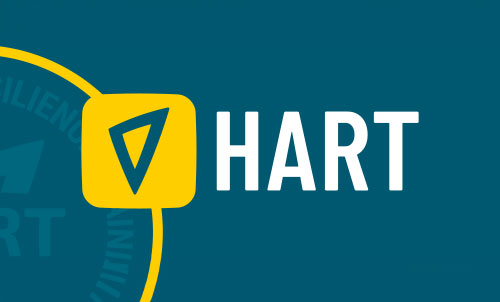
Discover a New Frontier in Resilience Training – Tailored for Those Who Face the Toughest Challenges. The HART Certification program offers specialized resilience skills for professionals in emergency services, healthcare, law enforcement, military, and other high-adversity fields. Accredited and proven, HART equips you to thrive amidst the most demanding situations.
Learn more
Course Delivery Type
There are three ways courses are delivered, and you will need to choose carefully as once you pay we are unable to change this with the accrediting body.
Below you see the descriptions of each course type, and next to the title of the course, you will see how this course is delivered. Choose the delivery type you most prefer.
Face to face
You will need to attend both sessions in a training venue.
Blended
Part of this course will be in a training venue, and the other part will be online.
Online
This course is delivered 100% online
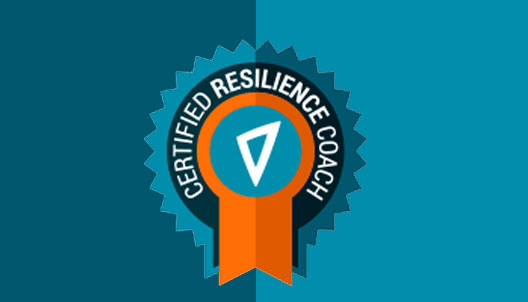
Are you looking to enhance your resilience and improve your overall well-being? Join us for a transformative workshop (one on one) based on the PR6 Resilience Program. Throughout this workshop, you'll discover comprehensive skills to boost your resilience across six domains: Vision, Composure, Reasoning, Tenacity, Collaboration, and Health.
Learn more
Course Delivery Type
There are three ways courses are delivered, and you will need to choose carefully as once you pay we are unable to change this with the accrediting body.
Below you see the descriptions of each course type, and next to the title of the course, you will see how this course is delivered. Choose the delivery type you most prefer.
Face to face
You will need to attend both sessions in a training venue.
Blended
Part of this course will be in a training venue, and the other part will be online.
Online
This course is delivered 100% online
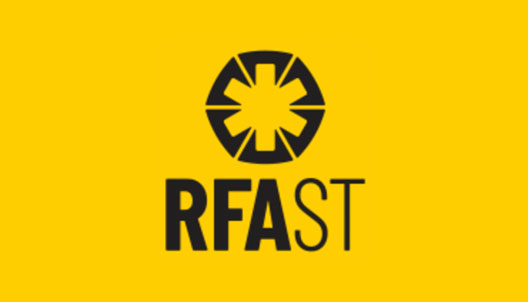
The RFAST workshop covers mental health prevention, emerging therapies, and new approaches. It emphasises psychosocial hazard awareness, the concept of Connected Resilience, and the six resilience domains with their highs, lows, and risk factors. Additionally, it helps you identify your strengths and create a tailored resilience action plan.
Learn more"This course has given me further tools to complement the tools I received in mental health first aid to continue making a change in people's lives before they become unwell."
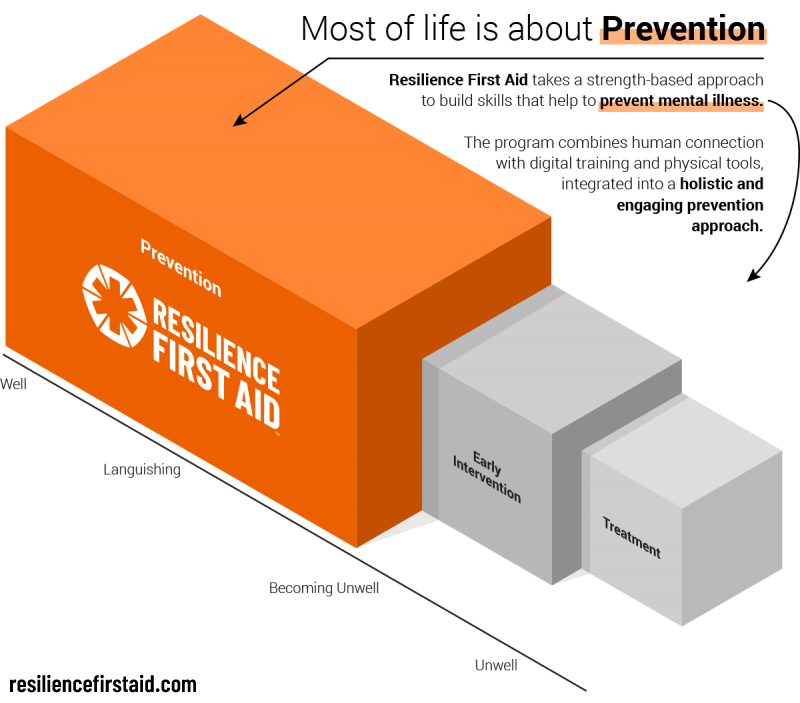
Only 1 in 10 people have resilience that’s strong enough to protect against mental illness. This means 9 out of 10 of people can benefit from increasing resilience skills to boost protection against depression, anxiety, and other forms of mental ill-health.
50% of people will experience a period of mental illness in their life, but only two thirds will feel confident to talk about it with someone they trust.
In Australia, the mental health crisis costs somewhere between $43 billion and $51 billion per year, while a further $130 billion is the cost of the loss in productivity due to the mental health issues.
This is why we need to take a preventative approach to mental health. Rather than waiting until people need professional treatment, we can start supporting each other to connect and build mental wellness proactively.
Don’t wait until the people around you are struggling. Take on the challenge now to build mental health proactively. This is how we can make a long-term impact.
Proactive mental health builds personal capacity that can help an individual avoid various mental health problems. It can also identify issues much earlier and prevent costs to the individual, the community, and society at large. Proactive mental health is more affordable and accessible and comes with more benefits than reactive mental illness treatment.
When we care earlier for the mental wellbeing of our friends, family, and colleagues, we can start to shift this global trend. This means we bring forward mental health intervention and we focus on building strengths in ourselves and each other – protective factors that prevent depression and mental illness through improved resilience and wellbeing.
This is proactive mental health.
Resilience First Aid (RFA) is a 2-day mental health certification that teaches strength-based skills to support resilience in others and build meaningful relationships. You will learn how to spot signs of low resilience in others, learn the language to talk proactively to people in need, and learn skills to help build their resilience. This makes Resilience First Aid a highly proactive approach to suicide prevention through building meaningful connections and skills to have impactful conversations.
Many people don't know what protects mental health, how to talk about it and what resources and skills are available. This is what Resilience First Aid will teach you.
Members of the public can offer proactive first aid/advice and have a conversation to help build resilience.
Many people don’t realise how important their mental health is until they are suffering, and it affects their everyday life. We need to act now.
This is a new approach to put trained mental health champions in place who actively boost the resilience and mental health in their communities. The course does so by teaching an effective conversational method called the ALL Protocol, followed by a detailed understanding of the six domains of resilience, skills and functional features of each to notice in others, as well as practical language tools to have meaningful conversations.
In addition, participants are given access to ongoing tools and assessments to explore and build their own resilience to create sustainability of the teachings, alongside resources that help facilitate conversations and build awareness.
The skills learned through Resilience First Aid apply to all relationships - with family, with friends, with colleagues, and all other interactions. The ALL Protocol taught through the certification is highly useful and applicable in everyday life, with participants frequently experiencing daily occurrences where they notice themselves using the ALL Protocol. It’s simple, easy to remember, and builds relationships through a strength-based approach.
Participants also learn self-care tools to build their capacity to sustainably support both themselves and others, avoiding burnout and compassion fatigue. Through a comprehensive integration of materials, resources and training, Resilience First Aid provides a unique and neuroscience-based approach to proactively protect mental health.
Resilience First Aid is built on a peer-reviewed strength-based Predictive 6 Factor Resilience Model (PR6) which proactively builds resilience skills in the community.
Resilience First Aid is built on the peer-reviewed Predictive 6 Factor Resilience Model (PR6). The PR6 is a comprehensive whole body and brain resilience model that includes a validated psychometric assessment, as well as detailed skills to proactively build resilience.
The PR6 model and skills-building approaches are used in research at various universities (including Harvard, University of San Francisco. Northwestern Uni, Boise State Uni, Northeastern Uni, Boston University, Coventry Uni, UNSW, and more). Over 500 clinicians and mental health practitioners also use the PR6 assessment and training in their practices as a validated approach.
The PR6-based Driven Resilience training program is accredited by the Commission on Accreditation for Prehospital Continuing Education (CAPCE) (https://home.hellodriven.com/articles/capce-accredits-driven-resilience-training/). This recognizes the program’s leading approach to bring the latest science-backed developments as a practical course that anyone can learn.
“Not only does the Driven Resilience program build important skills for EMS practitioners, the use of microtask learning represents an important innovation in the delivery of continuing education.” Mark Terry, Chief Certification Officer
Ongoing research and peer-reviewed validation of the model and resilience training program have established the PR6 as a leading model and program with clinical effectiveness in building resilience as a proactive approach for mental health.
Resilience First Aid builds on this deep research and validation by making the PR6 model accessible through a certification training and additional resources that create lasting change and protection. This establishes Resilience First Aid with a strong science-based approach that enable meaningful assessment and potential for further validation and impact.
Getting certified in Resilience First Aid means you’ll learn about an existing set of science-based skills
RFA is a high-impact course that teaches you practical skills alongside the latest neuroscience of preventative mental health. As part of completing the certification, you will receive:
What sets Resilience First Aid apart is the resources that you take away. In addition to the two-day training course, you’ll also get the following resources to keep learning and build resilience:
On completion of the course, you will:
In three years, you’ll have the opportunity to renew your certification through a one-day refresher course, where you’ll learn more about the latest developments and scientific insight to keep your knowledge and skills updated.
Resilience First Aid (RFA) is a mental health certification that equips individuals with strength-based skills to support resilience in others and build meaningful relationships. With RFA, you will learn to spot signs of low resilience in others, as well as learn the language to communicate proactively with those in need. Additionally, you will learn practical skills to help build the resilience of others, making this certification a highly proactive approach to suicide prevention. Through building meaningful connections and equipping individuals with impactful conversation skills, Resilience First Aid supports the development of strong, resilient individuals who can thrive in the face of adversity. Participants who have completed the course have shared their positive experiences.
One of the main aspects that people liked about the training was how well-structured it was. The course covered six domains of resilience, which were explained in detail through informative videos and animations. Participants appreciated the depth of knowledge shared, which included neuroscience and the physiological links to behavior.
The way in which the content was delivered was also appreciated. Participants found the instructors to be engaging and knowledgeable, using practical examples and case studies to cement the concepts. The interaction and group discussions created a safe space for people to share their experiences and learn from each other.
Participants also found the Resilience First Aid training to be applicable to all aspects of life. They enjoyed the relatability of the material and appreciated how it could be used to support others as well as themselves. The Resilience First Aid kit was also a helpful resource that participants could take away with them.
The Resilience First Aid training covered every aspect of resilience and provided practical, easy-to-start tips and skills. Participants appreciated the evidence-based information and were able to learn about the brain and how it processes emotions and is connected to actions. This knowledge provided a deeper understanding of the domains of resilience and how they relate to personal development and helping others.
Overall, those who completed the Resilience First Aid training found it to be a comprehensive, engaging, and practical resource for developing resilience. The course covered all six domains of resilience and provided evidence-based information, which was grounded in neuroscience. Participants appreciated the personal interaction, group discussions, and the candor of the instructors. The Resilience First Aid kit, along with the videos and whiteboards, made it easy to put the concepts into practice in real-life situations. With this training, participants gained confidence in addressing mental health issues and were able to get a different perspective from previous training. Resilience First Aid training has proven to be an effective resource for developing resilience in all aspects of life.
Main aspects participants enjoy about Resilience First Aid training: